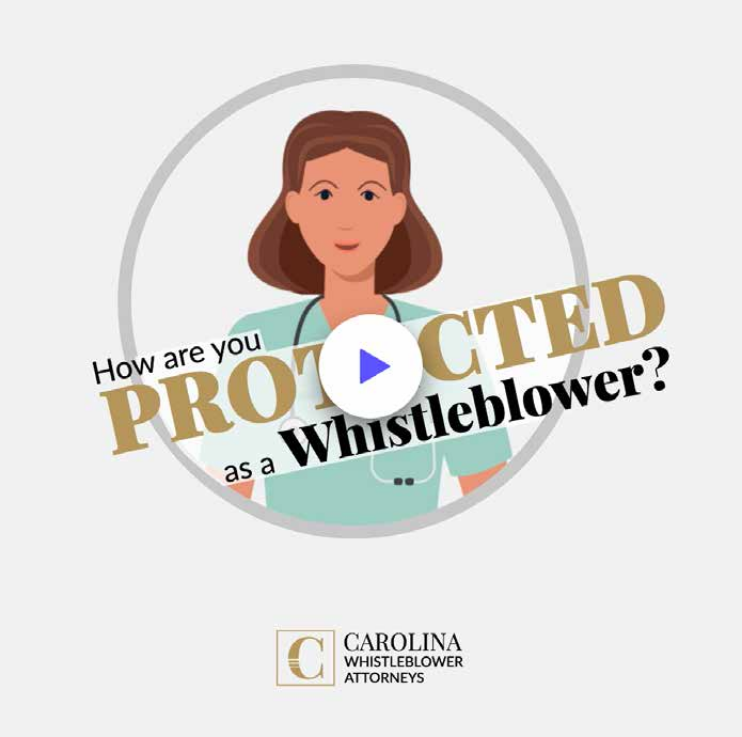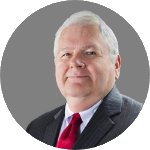NC Medicaid Expansion Could Mean More Medicaid Fraud: Have You Spotted Any?
The 2024 NC Medicaid expansion means that an additional 600,000 people in North Carolina are qualified for Medicaid coverage, bringing total enrollment to around 3 million. About 25% of North Carolinians currently depend on Medicaid for vital healthcare resources, so expanded coverage could be beneficial.
Unfortunately, research has estimated that more than one out of five Medicaid dollars will be used for “improper payments” to corporations, pharmacies, hospitals, and others. This is Medicaid fraud, and it hurts patients and taxpayers alike.
Even before the NC Medicaid expansion, the North Carolina Department of Justice had reclaimed $900+ million for the Medicaid program and amassed 450+ criminal convictions in fraud and abuse cases against healthcare providers. The opportunity and likelihood of abuse is now even greater.
Do you suspect Medicaid fraud? Even if you’re not sure or think you were involved, we know how to help you and help protect you. To discuss your concerns confidentially and get recommendations on what to do next, call our team at 1-888-292-8852 or chat with us now.
What is the new NC Medicaid expansion?
The new NC Medicaid expansion, which went into place Dec. 1, 2023, is intended to increase healthcare access to low-income adults who previously fell into the “coverage gap.” These individuals earned too much to qualify for Medicaid under the previous rules but not enough to afford private insurance. Now, these individuals can access essential healthcare services like doctor visits, hospital care, mental health support, and prescription medications, among others. But here’s where greedy fraudsters come in.
What are common kinds of Medicaid fraud and how do they hurt people?
Medicaid fraud occurs when individuals or organizations deceive the Medicaid system to receive unauthorized benefits or payments. Medicaid fraud can take many forms, including:
- Billing for services that were not rendered
- Overbilling by charging Medicaid for more expensive services than those performed – also known as “upcoding”
- Providing false diagnoses to justify unnecessary tests or treatments and inflate claims
- Healthcare providers may accept kickbacks for patient referrals, or bribe patients to use services that are not medically necessary

Potential harms caused by Medicaid fraud
Medicaid fraud is not a victimless crime – it hurts patients and taxpayers in several ways, including:
- Reduced quality of care for patients and a lack of availability for crucial procedures
- Healthcare providers treating patients in ways that do not help and that possibly harm them
- Higher taxes for everyone to make up for increased healthcare expenditures
- Harm to vulnerable populations who are the most dependent on Medicaid, such as people below the poverty line, seniors, people with disabilities, and minorities
- Patient exposure to legal, financial, and personal consequences for a scam that victimized them

Who commits Medicaid fraud?
Any healthcare provider could commit fraud, from big corporations to small organizations to individuals who are paid by Medicaid for their services, including:
- Ambulance businesses
- Assisted living facilities
- Dentists
- Doctors
- Hospice and long-term care facilities
- Hospitals
- Home health and caregiving agencies
- Managed Care Organization (MCOs)
- Medical billing companies
- Medical device companies
- Medical supply companies
- Nurses and nursing assistants
- Pharmacies and pharmaceutical companies
- Physical therapists
- Psychologists and therapists
- Social workers
- And more…
Ready to talk to someone about your suspicions of Medicaid fraud? Contact us today at 1-888-292-8852 for a free, confidential conversation to discuss your next steps. There is no obligation.
The federal False Claims Act empowers you to try to hold Medicaid fraudsters accountable – and possibly be rewarded
Faced with a problem this daunting, does accountability stand a chance? Part of the answer involves whistleblowers — people who suspect Medicaid fraud and who are willing to call out malfeasance.
By filing a whistleblower claim for Medicaid fraud, you’re standing up for medical patients and taxpayers across the country. In addition, you could also receive a portion of any money the government recovers as a whistleblower reward – up to 30% in a successful case. Here are some examples:
- In one of our cases, our attorneys helped secure a $5.4 million reward for two whistleblowers as part of a $22.5 million settlement against Doctor’s Care, P.A. for allegedly falsely claiming patient visits to urgent care facilities as eligible for Medicare and Medicaid.1,4
- In another case, our attorneys helped whistleblowers receive a reward as part of a $5.25 million settlement against RxAmerica LLC to resolve allegations that it made false submissions to the Centers for Medicare & Medicaid Services (CMS).1,4
Protections for whistleblowers
Some whistleblowers are reluctant to come forward with information because they are fearful of the consequences. We know how to protect you from retaliation:
How to report Medicaid fraud against the government
If you think someone is taking advantage of NC Medicaid expansion to commit fraud against the government—whether it’s a person or a company—here’s what you can do:
- Talk to a whistleblower attorney for a free, confidential discussion about your options
- Get guidance from your attorney on gathering evidence to support your Medicaid fraud case
- Have your attorney file a whistleblower or “qui tam” claim – your identity will be kept secret while the government investigates your claim
Why choose Carolina Whistleblower Attorneys to be your Medicaid fraud attorneys
Our team is led by former White House-appointed attorney Bill Nettles. During his tenure as U.S. Attorney, Bill’s office brought the state of South Carolina to top four in the country for whistleblower recoveries.1,4
Our mission is to root out fraud against the government, and we back those who have the courage to step up and expose Medicaid fraud. Our results speak for themselves—we’re committed to seeking justice.1,4
With our You-First Policy, your interests are our top priority every step of the way. As part of this policy, we will advance all the costs of building your case. You won’t owe us a penny unless we win an award for you—guaranteed.2
If you suspect Medicaid fraud, let’s have a confidential conversation. We’ll answer your questions and discuss your options. The conversation is free, and there’s no obligation.
Contact us online or call 1-888-292-8852 today!
Similar Articles
Healthcare Fraud | December 05, 2024
Carolina Whistleblower Attorneys Helps Brave Whistleblower Resolve Alleged Medicaid Scheme
As a whistleblower attorney and former U.S. Attorney, it’s always rewarding to be part of...
Healthcare Fraud | March 07, 2024
Medicare Catheter Fraud Could Cost the Public $2 Billion
On January 9, 2024, The Washington Post and The New York Times reported on a...
Healthcare Fraud | March 16, 2023
What Is a Healthcare Kickback?
Each year, the Department of Justice’s False Claims Act recoveries are mostly from fraud in...
Contact the Carolina
Whistleblower Attorneys
If you’re wondering if it’s a good idea to speak with a whistleblower lawyer about what you know, let us set the record straight.
- Corporate ethics hotlines can be risky and may lead to termination. If you’ve already done this, call us immediately.
- Your coworkers could be aware of the fraud – or complicit in it – and you should not talk to them about it.
- The first claim to be filed under the False Claims Act can proceed – if you’re not first, you’re at a serious disadvantage and may get nothing (another reason not to speak to your coworkers about it).
- A confidential discussion costs you a few minutes, but could save you time, stress, and money.
"*" indicates required fields

